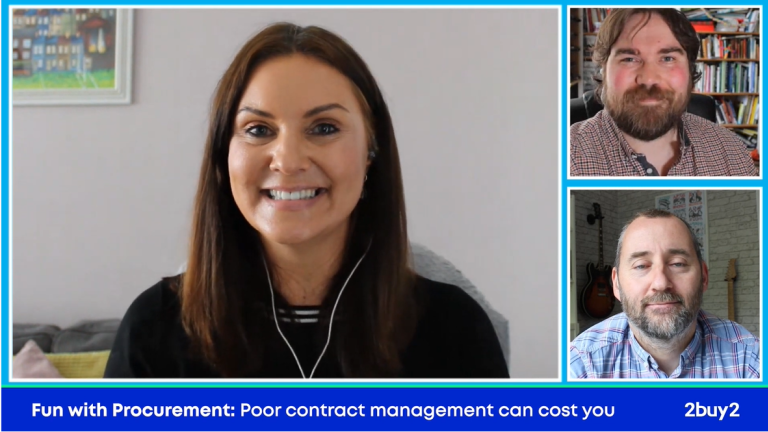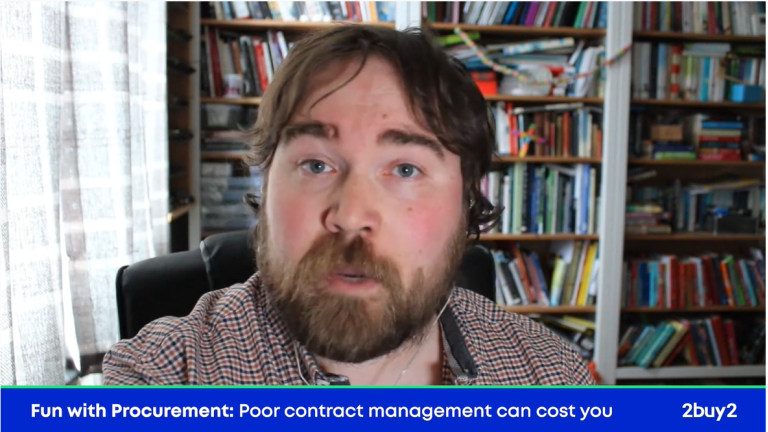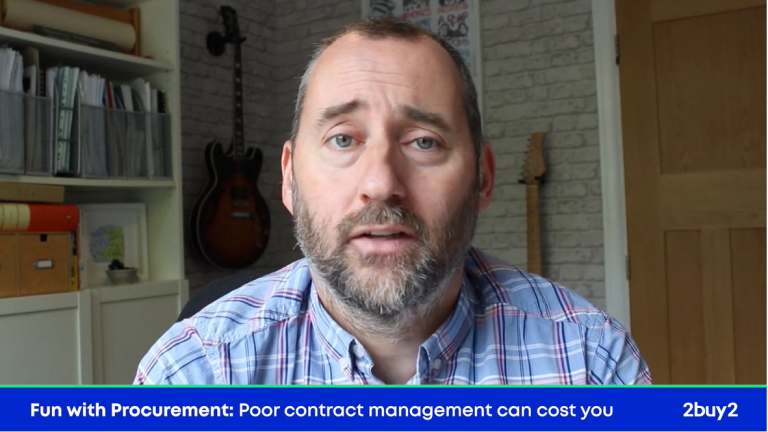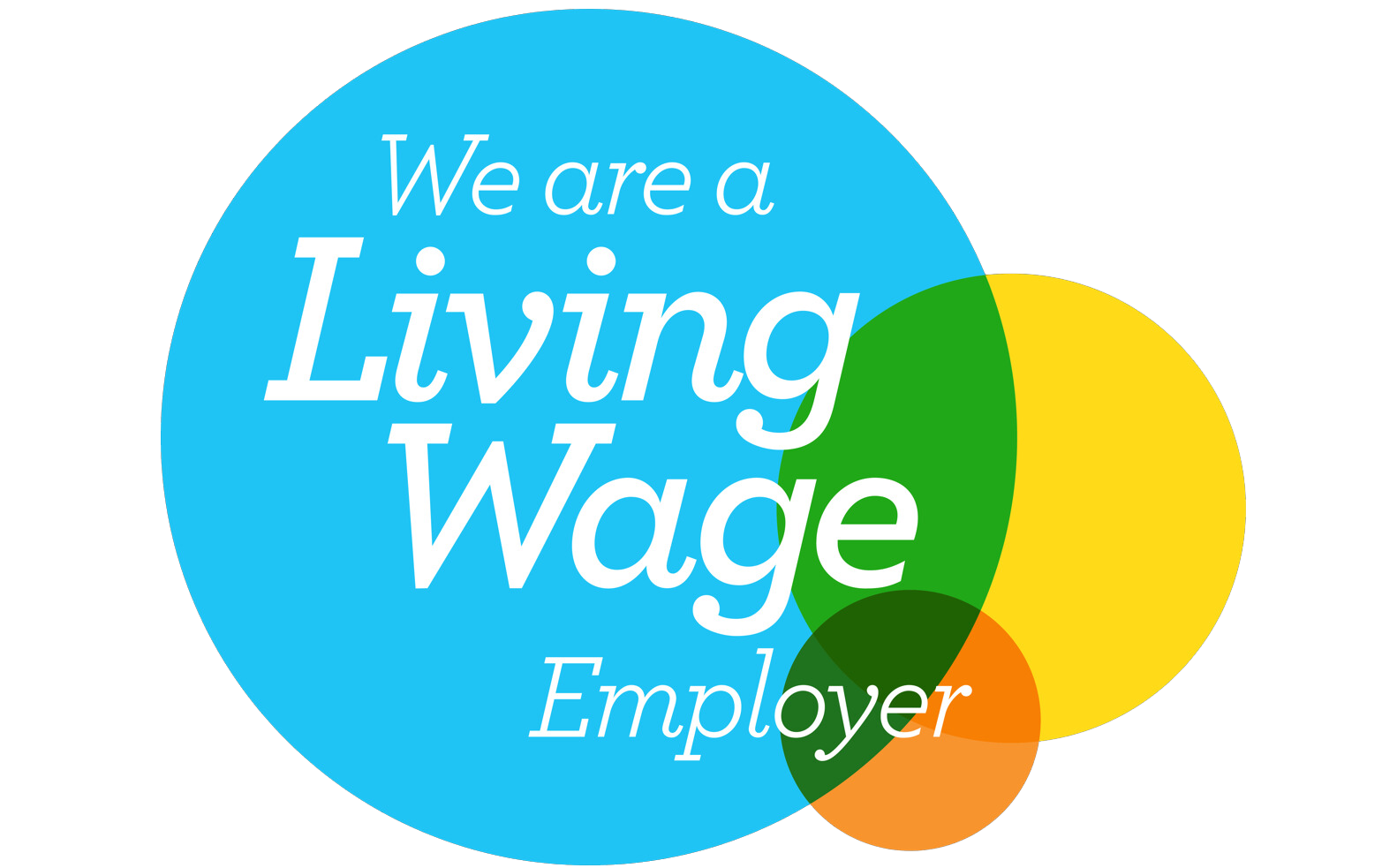
Time flies when you’re having fun; our third episode is already out! If you are yet to catch up on our previous two episodes, you can find them here, or you can find the recaps for episode 1 and episode 2 by clicking those links.
For our third episode – How being poor at contract management can cost you – CEO Rob Kissick, Head of Category Nathan Swinney and returning host, Marketing Executive Emma Edwards are talking about all things Contract Management!
Our trio are covering topics such as:
- The common pitfalls of Contract Management
- The reasons these problems occur
- How to avoid repeating mistakes
- How you can reduce/stop your contracts from leaking in value
Click here to watch the episode. Don’t forget to subscribe!
Below we’ll be covering most important aspects that have been discussed in this podcast episode.
Firstly, Rob and Nathan cover some of the common Contract Management nightmares they’ve seen over the years.
Common Contract Management Problems:
Contract management is an extremely important process in the procurement journey. When your contract is finally set up and you’ve made an agreement with your chosen supplier, your next big step is making sure that the contract is going to continue to be profitable in the future.
In one of their procurement advice blogs on Contract Management, Education Buying mention how important it is to maintain a healthy working relationship with your suppliers. Depending on the nature of your contract, it’s vital to have regular meetings where you can discuss the performance of the service and any issues that may arise throughout its duration.
Nathan backs up the importance of building a relationship: “the one that really bothers me is adversarial contract management. So what we’ve got to remember is that we deal with humans, people, and that contracts ultimately are relationships.”
Another way in which contract management can go wrong is by setting up the contract and then leaving it to gather dust, Nathan calls it ‘let and forget’:
“So, the hard work’s been done, we procured it, we’ve got a great supplier. We’ve got great prices, great terms, great quality. We’ve done a good job on our procurement, so we can forget about it now, and that, is a really bad example of contract management. Even the best procurement, you could run the most perfect procurement process in the world. It will still need managing, it still needs monitoring.”
While suppliers do need to be held accountable, as stated previously, contracts are ultimately a relationship between two parties, it’s a two-way street. We have mentioned this before but by leaving a contract unmonitored, it will lose value, guaranteed. On the topic of not monitoring contracts, Nathan adds his thoughts on ‘evergreen contracts’:

“So the other type of contract management is what we call evergreen contracts. And this is where a supplier basically, just keeps rolling over your contract. You’ve got no idea of where you stand in terms of the contractor ration, what terms you’re on, what prices are you meant to be paying, what you’re actually meant to be delivering, and what can sometimes happen is there’s a change of person within your organization.
Say, someone that was managing a contract has moved on, retired onto another job, and basically that contract has been either left or handed to someone who doesn’t really own it’ll take responsibility. What happens is in those cases, the supplier will manage it and the supplier will naturally manage it in a way that’s going to suit them and their outcomes.”
Evergreen contracts are a prime example of the problem with not monitoring your contracts effectively. By letting one party completely take over the process of contract management, they can take advantage of the situation without you even being aware of it until it is too late. There are situations where suppliers might take advantage of the situation, which can result in large costs that could be avoided.
Rob goes on to talk about some experiences he has had during his time in procurement. He mentions that in order to make sure your contracts are strong and going to be well managed, focus on it right from the start, because poor contract management can begin as soon as pen first touches paper:
“So poor contract management starts right at the start in understanding what it is you’re trying to buy and understanding what the value is in the contract, both yourselves and as the procurement person, as the person buying it. And also to the supplier. And I think the other side of contract management then, in terms of where it can fall down, is it engaging your wider stakeholders?”
By thinking about both parties when starting the procurement process, you can help yourself further down the line. Changing your contracts when they’re already established with a supplier is doable and suppliers will account for that change in requirements for example however, they will charge you. This is called Scope Creep.
A way to counter scope creep is through variation clauses in your contract. By agreeing beforehand on renegotiation prices through pre-agreed variation in your contracts, you can avoid agreement disputes. The question then becomes, whose terms did you sign up to? Was it your terms as the buyer, or was it the suppliers terms? Because depending on the answer, the price can change dramatically.
Overcommitment is another common problem to look out for, has a supplier stretched themselves too thin by overpromising you in order to win the contract? Nathan continues with the responsibility that procurement teams have in managing suppliers:
“…as procurement people we often recognize is that we take responsibility, not just for ourselves, but we have to take responsibility for our suppliers as well, to a degree and make sure that they’re not getting into contract situations, which they can’t handle now. And that comes back to how well that procurement has been undertaken and how well you’ve evaluated suppliers.”
The responsibility of a procurement professional is first and foremost, ensuring they deliver best value for money contracts to their clients, without compromising on the quality of the products or services delivered by their suppliers. It’s something 2buy2 takes very seriously and if you have found that when reading through these problems seem far too relatable – don’t hesitate to contact us, we are here to help.
The Biggest Costs of Poor Contract Management:
Our trio have covered some of the common problems in contract management, the next logical step would be how these problems can cost you. While money seems like the obvious factor, Rob brings another equally important area that you need to be aware of; “I think it’s certainly time, the amount of time that can be taken up, not just with the person doing the procurement, but within an organisation as a result of poor procurement.”
Time is a vital resource in procurement not only for the fact that once it’s gone, it’s never coming back. Missing an opportunity that could’ve saved your organisation due to mismanagement of time is a very difficult problem to come back from.
One of the more damning costs can be reputational, this goes for both supplier and organisation. Rob tells a story about a time when he had to procure blankets when he was working for an emergency procurement charity:
Using this example, there was a potential for massive reputational damage to the organisation if those had gone out in their unintended state. It would’ve not only harmed the organisation reputation, but the suppliers as well.
From poor quality comes poor reputation.
Linking with reputational damage is also then legal trouble. As Rob goes on to say: “…if you suddenly are producing a product and the quality of it drops off and you don’t manage that well, then you can end up with legal challenges and legal issues as a result of that.”
Sometimes though, you won’t even be aware there is an issue until further down the line, when an end-user or customer flags it as a problem, that’s when monetary costs come into play. If there has been an issue with the service to the point where an end-user has flagged it, Nathan states “it’s probably been happening for a while…”. So, what are the next steps to take?
Typically, you would need to bring in the supplier, evaluate what the problems are and where they could’ve come from. Before that, it is critical to ensure you have the facts before any other steps are taken. These two key facts are:
- What went wrong?
- How did it go wrong?
After that you can start to look at how to fix the issue, just know, money will need to be spent.
Nathan mentions that the cost of rework can be extensive depending on the sector:
“…the cost of rework in some of my previous examples have been in the construction world where we’ve done contracts for quite large capital building projects. The cost of rework can be extensive if a contract hasn’t been managed well, if a contractor has been merrily carrying on, based on the specification interpretation. Which isn’t quite correct, sometimes the cost of putting that right can be extensive. And then you get into the wrangle of, well, who’s responsible for that.”
Responsibility, depending on the severity of the cost of rework can also then become a legal issue, which can then turn into relational difficulties and by that point your problem has spiralled, and it can feel doomed. So how do you avoid it?
“So, the simple thing is managing the contract from the start. Understand what are the risks and that’s one of the key points I hear with every procurement you’ve got to set out from the start, what’s the risks, what could go wrong? What are the things that could fail? And have we addressed that in either the specification or the contract terms or as part of the evaluation of suppliers.”
Cover all bases from the start and you’ll be clearing those hurdles instead of fumbling at the first jump.
Unfortunately, sometimes poor contracts management can come from a change in environment rather than something directly related to your contract. We’ve all had to manage through a turbulent 18 months and while a lot of businesses have managed to remain profitable, even growing their profits in some cases, their core business may have dramatically changed during that process.
One of the ways you can make sure you won’t be completely blindsided by outside circumstances is through constant evaluation and re-evaluation of your supplier, find out if they are in a good financial situation? Are they relying on you for your contracts? If so, that could cause issues if you wanted to pull away.
But what would happen if there was no contract in place and issues started to crop up?
How to Avoid Problems when No Contract is in Place:
Nathan starts by considering the fact that you may be in a contract, you just weren’t made aware, “I’d be surprised if there wasn’t a contract. And the reason I say that is because when you think there isn’t a contract, often it will be the suppliers contract. And you’ve possibly just overlooked that. Or you’ve not realised that actually what you signed by way of a delivery notes.”
There is a risk attached to being unaware that you are signed into a binding contract and while we hope that suppliers are going to conduct themselves fairly within a contractual relationship, that isn’t always the case.
The fact that these contracts exist is to put in place an assurance of an outcome that you are spending money on. It is a value for money assurance, one to make sure you get what you are paying for and that you are protected from certain issues if they arise.

Nathan brings up evergreen contracts and long-term business partners:
“…the likelihood is that somewhere down the line – and we talked about evergreen contracts – or those that have may have been with a supplier for 10, 15 years, you may have worked with that account manager and he’s a lovely guy. And that’s absolutely fine, but you may not realize that for that entire time, there’s been a point in time where some terms and conditions have unloaded on someone’s desk and to get it off the desk, someone has just gone, oh yeah, it’s this supplier. We’ll just sign it, great off we go.”
Nathan likens it to a mobile contract, immediately scrolling through the terms and conditions to click accept just to get what you need straight away. For your key spends, it is vital that you take the time to understand what contract is underpinning that and if you aren’t sure, talk to your supplier and ask them as soon as possible.
There are far too many risks involved with staying in the dark on your contracts because if you are not happy with the delivery of a key spend, you will not be able to talk with your supplier about exit strategies or negotiations.
Sometimes both big and small organisations lose track of a contract, that can happen far too easily when you are also juggling other work. A great way to solve that is through using a Contracts Register to hold all of your contracts in one place. You can track all of your contracts spend, get notified of their expiration dates and benchmark spend to ensure your contracts are as efficient as they can be.
If you would like to get access to our free contracts register, click here and one of our procurement specialists will be in touch with a free demo.

Rob goes on to mention the battle of the forms and how that can lead to contract signing:
“…this is a classic thing called the battle of the forms, which is a procurement thing where in negotiation, you’re going back and forth and you’re given your terms and conditions. And the supplier has given their terms and conditions. And you basically bat it out to work out which ones win, and which ones apply. And usually, if it’s something significant, there’s some degree of negotiation and discussion over them.
But when that happens, you’ve got that clarity. If that hasn’t happened, then as Nathan said, they will be delivering those products. And when they deliver them, you’ll be signing a delivery note and in that delivery note signature, it’ll say, you accept our terms and conditions.”
Essentially, a contract is 9 times out of 10, in place whether you are aware of it or not. If you are unaware of some of your contracts, speak to the supplier delivering your products or services and ask them for the most recent copy of the contract. It is always better to engage with your supplier and continue to build the relationship than not engage with them at all and risk losing money and efficiencies.
How can you reduce or stop your contracts from leaking value?
Maintaining visibility across all of your contracts is the most important first step, how will you be able to stop them from leaking value if you aren’t monitored in the first place?
This is another key area that the contracts register can come into play. By tracking the start date, end date, spend, and categories, you’ll be in a really good position to reduce your contracts from leaking value. After mapping those contracts out, you can start to look at how effectively each contract is managed. You can look for differences such as:
- Whose terms are they on?
- When was the last time you met with suppliers?
- Which is the biggest spend area?
- Which has the biggest risk?
You have to remember to be proportional though, it is impossible to meet with all of your suppliers every week. Prioritise your most important contracts first and assess if they are covered across all aspects and meet with those suppliers.
Rob then states the importance of supplier management and how procurement is a link between organisation and supplier. From this, he goes on to mention:
“I think in terms of reducing and stopping contracts leaking value continual engagement with your internal customer, your internal stakeholder is crucial, what’s working? what’s not working? Why is it working? Why is that working better now than it was? Can we do more of that? Can we work with a supplier to enable them to do more of that? How can the supply add value to your internal customers, or product that they’re trying to produce, and really just acting as that kind of liaison between the two, I think is really important.”
By failing to engage with suppliers and internal stakeholders, you’re falling into the common let and forget problem that we previously spoke about. Be proactive in your contract management, never let an opportunity pass you by, even create your own opportunities. As soon as you become more reactive than proactive, you’re let the balance shift further out of your favour.
To Conclude:
Overall, contract management is a vital process that can lead to your contracts working for you, or against you. Be sure to avoid the common pitfalls of contracts management and take the time to recognise what contracts you are in. If you are unsure, contact your supplier and find out.
To stop your contracts from leaking, use a contracts register and continue to evaluate your contracts and asses the risks. Be proactive in your procurement, work with suppliers and internal stakeholders to make sure to commit to your contracts for the long term!
If you found yourself worrying about some of the common problems associated with poor contract management and would like help, be sure to contact us and one of our procurement specialists will be on hand to help.
Where to watch/listen to Fun with Procurement:
If you’re yet to tune into an episode of Fun with Procurement, you’ve missed a lot!
We are here to dissect all things procurement so be sure to sign up and listen along on Spotify, Amazon Music, Google and Apple Podcasts! You may find just what you were looking for.
We also have our 2buy2 YouTube channel where you can watch every episode of Fun with Procurement as they go live, so be sure to subscribe so you don’t miss the next episode. We have also linked this episode below if you’d like to start watching straight away:








